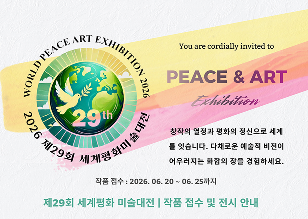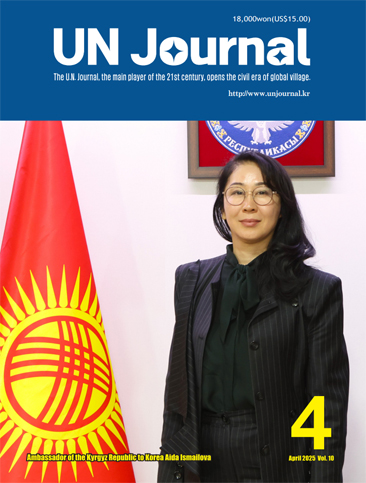Establishing a School for Diplomatic Talent. "Diplomatic Journal Promotes Educational Hub for Nurturing K-Diplomatic Cultural Envoys"
- From Records to the Future… "A School of Diplomacy Will Be Established" in 2026
- The "K-Cultural Diplomacy Center" Partners with the Migrant Workers' Human Rights Center
UNJournal Jon Lee | The 29 years of Diplomatic Journal are not simply a testament to its experience. They represent an asset built on the accumulated records and trust of the diplomatic field. Throughout this time, Diplomatic Journal has documented diplomacy not in the "language of power," but in the language of people and culture. Its records have captured the expressions of the field, rather than the words of agreements, and the weight of attitude, rather than the rhetoric of declarations. Now, the purpose of the 2026 K-Diplomatic Cultural Center is to pass this asset on to the next generation through education, training, and practical experience. Construction on the K-Cultural Diplomacy Center's international conference hall is scheduled to begin in March 2026, with completion slated for September of the same year. The Damhwa Cultural Foundation is spearheading the construction of this international conference venue, while Damhwa Media Group, the parent organization of the 29-year-old Diplomatic Journal, will be in charge of its operation. This structure combines documentary expertise, media management capabilities, and the philosophy of cultural diplomacy in a single space. This is significant not simply because it establishes a facility, but because it establishes a system with a clear responsibility for nurturing diplomatic talent. The K-Cultural Diplomacy Center is not simply a declaration, but a structure. It will be built as a campus-style platform, combining education and residential accommodations on a site of approximately 1,500 pyeong (approximately 4,600 sq ft). The design enables diplomacy to be learned through in-person learning, not just a one-day experience. Here, diplomacy transcends the classroom and becomes a part of daily life, discussions extend to the dinner table, and consensus is strengthened within the daily lives of the community. Why now? Today's diplomacy demands attitude before treaties, character before negotiation, and understanding before messages. Now that K-pop and K-dramas have captivated the world, the next step is clear. K-diplomatic culture is about talent. Participating in one-off events or a brief resume isn't enough. We need a permanent space to systematically cultivate protocol, communication, and planning skills applicable in real-world diplomatic settings. The K-Culture Diplomacy Center is a practical answer to that need. The reason this center is being established in conjunction with the Migrant Workers' Human Rights Center in Cheongju, North Chungcheong Province, is clear. Diplomacy isn't an abstraction; it operates on the ground. Migrant workers are members of Korean society and the subjects of everyday diplomacy who experience Korea firsthand. How we respect their rights and dignity is a reflection of Korea's national character and sets the standard for how the international community views Korea. If diplomatic education fails to embrace this reality, it will remain a textbook diplomacy. The center's core program is aligned with the United Nations' Model General Assembly. Young people experience the entire process of debating, coordinating, and reaching agreement on real-world international issues. Real-world issues like migration, human rights, and multiculturalism serve as the starting point for discussions, and training is provided to design solutions through the language of culture and diplomacy. This is not simply a competition; it is a miniature diplomatic field, a training ground for future diplomats. The design of the space is also future-oriented. It consists of an education zone for practicing protocol, international etiquette, and media storytelling; a field zone for planning and operating public diplomacy projects; a residence zone for strengthening teamwork and consensus-building skills through residential training; and a connection zone for networking hubs linked to embassies, the National Assembly, and international events. By combining all these elements, the K-Cultural Diplomacy Center is not simply a "building"; it functions as a sustainable talent development system. This space, scheduled to open upon completion in September 2026, will be a school of diplomacy. As a platform that transforms records into education, connects education with the field, and connects the field to the world, the Diplomatic Journal, with its 29-year history, is joining us on this journey for a single reason: what young people need for their future is not qualifications, but attitude, and the essence of diplomacy is not titles, but the character of the person. The Diplomatic Journal is now handing over its records. And those records will truly become living diplomacy only when the K-Cultural Diplomacy Center and the Migrant Workers' Human Rights Center stand together.






































